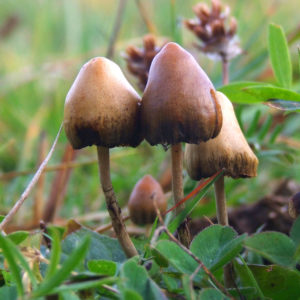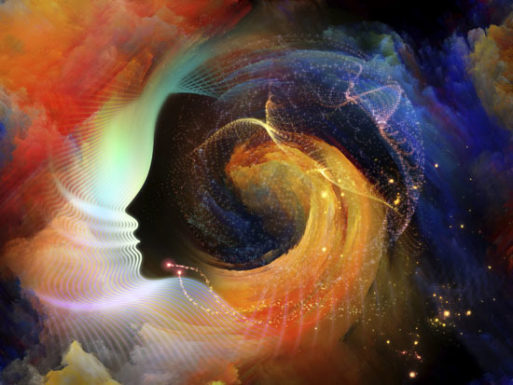
The mushroom “silocybe semilanceata” contains natural psilocybin.
(Credit: wikipedia)
For people living with cancer, anxiety and depression are often a fact of life. Simply knowing that they have a potentially life-limiting disease is a difficult burden to bear. Then the side effects of treatment often leave them too sick and exhausted to cope effectively with their fears. As a result, some patients become overwhelmed with negative emotions, such as anxiety, sadness and despair.
Now the results of two small clinical trials point to a new treatment that may help cancer patients with severe psychological symptoms enjoy a better quality of life. A synthetic form of the drug psilocybin — the active compound in hallucinogenic mushrooms — has effectively reduced or eliminated symptoms of anxiety and depression in a handful of patients for whom conventional therapy provided no relief.
Researchers at New York University’s Langone Medical Center and Johns Hopkins University completed the studies. At NYU, 29 patients randomly received either a dose of psilocybin or a placebo. Then, several weeks later, they received the opposite compound (placebo or the active drug.) At Johns Hopkins, the study involved 51 patients who received either a high dose of psilocybin or a very low dose. After a few weeks, the doses were switched.
The results were remarkable. After a single high dose of psilocybin, 80 percent of patients had a significant reduction in symptoms of anxiety and depression. (The lower dose had no effect.) What’s more, that effect persisted for at least six months. The results echo a 2011 study out of UCLA, which tested psilocybin’s effects on 12 cancer patients with similar results.
The drug also helped patients who were terminally ill cope more effectively with the knowledge of their impending deaths.

Patients who took psilocybin described mystical experiences that brought on feelings of calm and peace.
(Credit utne.com)
How Psilocybin Works
Doctors don’t know exactly how or why psilocybin works, but they have some clues. The drug binds to the same receptors as serotonin, an important brain chemical that affects many different pathways in the brain, including those for mood and sleep. They theorize that the drug somehow allows parts of the brain that normally function independently to communicate. This, in turn, may facilitate the kind of breakthroughs and “epiphanies” that patients report.
The fact that patients who had strong mystical experiences while taking psilocybin had the best clinical effect supports this theory, the researchers explained.
Many in the psychiatric community hailed the studies as a breakthrough for cancer patients, 40 percent of whom suffer significant psychological distress. In a commentary accompanying the article, Dr. Jeffrey Lieberman, a former president of the American Psychiatric Association, and Dr. Daniel Shalev of the New York State Psychiatric Institute, called the studies “a model for revisiting criminalized compounds of interest in a safe, ethical way.” In all, 19 scientists and doctors contributed comments in support of the work.
In fact, psilocybin is not the only hallucinogen currently being studied as a treatment for psychological distress. The FDA recently approved a clinical trial of the drug MDMA for the treatment of post-traumatic stress disorder, or PTSD. MDMA is 3,4-methylenedioxymethamphetamine, the illegal “party drug” commonly called ecstasy.
If the trial goes well, MDMA may be commercially available by 2021.

 Psilocybin Study Promises Relief for Cancer-related Anxiety
Psilocybin Study Promises Relief for Cancer-related Anxiety



 How to Comfort A Dying Loved One
How to Comfort A Dying Loved One
 Our Annual Seven Holiday Gifts for Someone Who Is Grieving, 2024 Edition
Our Annual Seven Holiday Gifts for Someone Who Is Grieving, 2024 Edition














